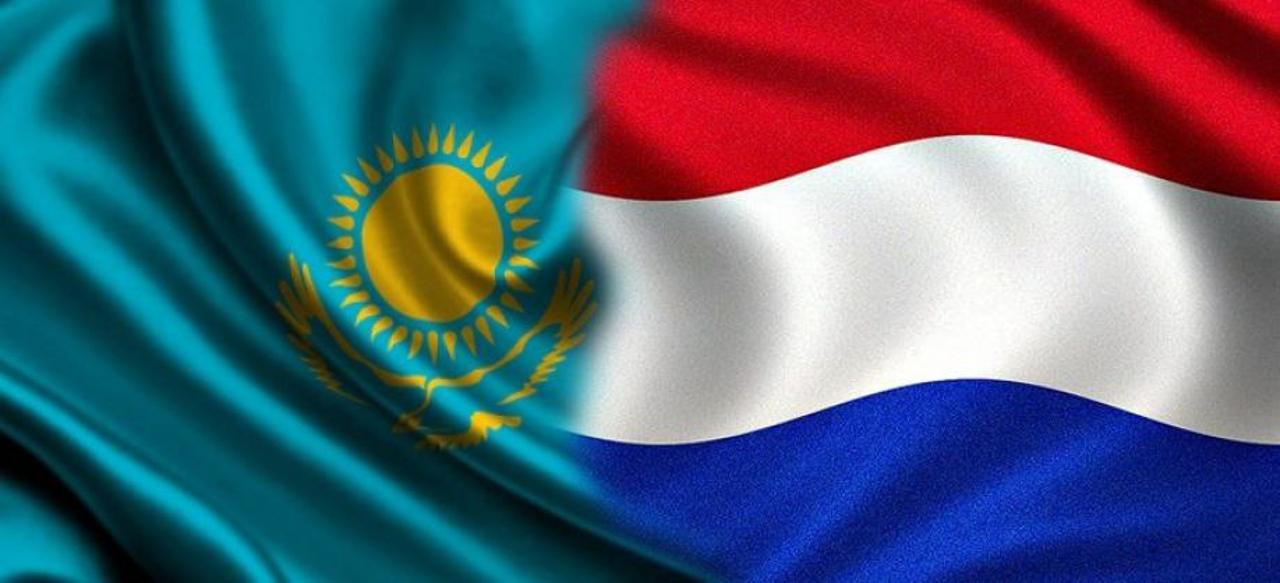BAKU, Azerbaijan, August 13. Kazakhstan and the Netherlands are joining forces to forge a new partnership that spans various sectors of the economy. With the winds of change blowing in favor of the Middle Corridor and a pivot towards renewable energy, the two countries are joining forces in a way that could tip the scales of trade and investment between Europe and Asia.
Kazakhstan’s partnership with the Netherlands is expanding across agriculture, transport infrastructure, and the green economy, Giulia Cretti, research associate at the Clingendael Institute, told Trend in an exclusive interview.
The Netherlands has been the cream of the crop when it comes to investing in Kazakhstan for years, with a whopping total gross inflow of foreign direct investment (FDI) hitting $67 billion. Agriculture continues to be the bread and butter of Kazakh-Dutch cooperation, coming in a close second to energy in the grand scheme of bilateral engagements.
“Kazakhstan possesses extensive agrarian landscapes and
resources, whereas the Netherlands is recognized as a frontrunner
in the realm of sustainable agronomy, advanced greenhouse systems,
and seed innovation.” This positions the Netherlands as an optimal
collaborator for synergistic knowledge transfer, co-initiatives,
and the deployment of cutting-edge solutions aimed at enhancing
crop resilience and adapting to climatic fluctuations,” noted
Cretti.
Recent official metrics substantiate the agricultural sector's
vigorous trajectory in Kazakhstan, with gross output across
agriculture, forestry, and fisheries attaining $3.4 billion from
January to June 2025, exhibiting a physical volume index of 103.7
percent relative to the corresponding timeframe last year.
Nonetheless, the augmentation of economic interconnections is
fundamentally contingent upon enhancements to logistical
frameworks, especially within the Middle Corridor—an essential
transcontinental commerce artery linking China to Europe via
Central Asia and the Caucasus. This pathway presents a tactical
option to the conventional Northern and Southern Corridors,
optimizing regional interconnectivity and trade diversification.
The throughput of freight logistics along the designated corridor
surged by 69 percent in 2024, reaching an impressive 2.9 million
tons, with strategic objectives aimed at scaling the annual cargo
capacity to 10 million tons by 2030.
Cretti emphasized the infrastructure challenges and the need for a conducive investment climate to realize the corridor’s full potential.
“To encourage a greater involvement from the Dutch private sector, there is a need to increase the transparency and predictability of the business climate through regulatory reforms. De-risking mechanisms and incentives at the EU level are also crucial to attract the private sector,” Cretti stated.
The Middle Corridor weaves its way through a patchwork of sovereign lands—Kazakhstan, Uzbekistan, Turkmenistan, Azerbaijan, Georgia, and Türkiye—showcasing the tangled web of geopolitical challenges in crafting a smooth, sanctions-free transport route. A secured and efficient corridor would significantly scale Dutch manufacturing and green investments in Kazakhstan’s regions.
Moreover, Kazakhstan possesses substantial stockpiles of
critical minerals essential for the ecological transition,
encompassing uranium, copper, and zinc. In accordance with the EU’s
strategic imperatives, Kazakhstan’s sustainable economic framework
presents compelling prospects, particularly in the domain of
critical raw materials (CRM) and the burgeoning sector of green
hydrogen. “The European Union has previously executed a Strategic
Partnership Memorandum of Understanding with Kazakhstan in 2022 to
ensure a resilient supply chain of Critical Raw Materials and is
currently seeking to implement it through the Roadmap ratified at
the EU-Central Asia Summit in Samarkand,” Cretti remarked.
Kazakhstan's extensive natural resource portfolio and its
advantageous geopolitical location adjacent to the Caspian Sea
position it as a pivotal player in the burgeoning green hydrogen
sector, which is currently undergoing rigorous exploration and
innovative development initiatives within the European market for
optimal export strategies.
Advancements in the renewable energy sector are quantifiable:
statistics from Kazakhstan’s Ministry of Energy indicate that
renewable sources constituted 6 percent of the overall electricity
generation by the first quarter of 2025, aligning with the
objectives delineated in the national Concept for the Transition to
a Green Economy.
Kazakhstan’s dynamic collaboration with the Netherlands serves as a paradigm of a holistic strategy for sustainable development, harnessing agricultural advancements, optimizing transport infrastructure, and catalyzing investments in the green economy. The actualization of these aspirations necessitates navigating complex regulatory frameworks and geopolitical dynamics, enhancing transparency mechanisms, and galvanizing private sector engagement via conducive policy environments and robust international collaboration. Achievement in these domains will not merely fortify Kazakh-Dutch relations but will also amplify Kazakhstan’s strategic position as a pivotal nexus bridging Asia and Europe on sustainable and robust economic frameworks.







